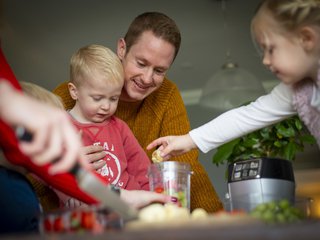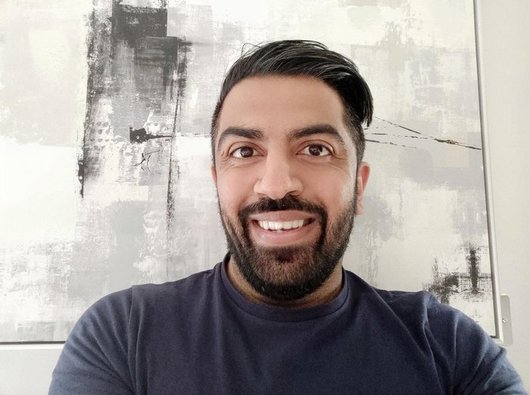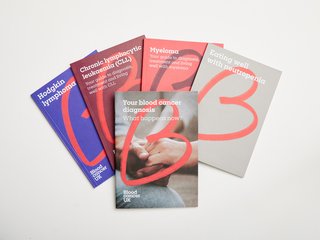Looking after yourself with PV
Many people who are diagnosed with blood cancer want to know if there is anything they can do to help themselves.
How to help yourself
We don’t yet understand why people get PV, but it’s important to realise that your lifestyle hasn’t caused it. However, there are simple things you can do which may make a difference to how you feel, mentally and physically.
Staying hydrated
It’s good for everyone to drink plenty of fluids, but it’s particularly important if you have thicker blood.
The NHS’s Eat Well Guide recommends drinking 6 to 8 glasses of water, or other low fat and low sugar drinks, every day. This includes tea and coffee (as long as the milk is low fat and you don’t add sugar).
Ask your hospital team to advise you how much fluid you should be aiming to drink each day.
Stopping smoking
Smoking increases your risk of thrombosis (blood clots). As PV also increases this risk, it’s important for smokers with PV to stop, or at least cut down.
This may not be easy, particularly if you’re feeling shocked and anxious about your diagnosis, but there are services that can help. The NHS offers advice and support to stop smoking, including ways to quit and information on local services.
Keeping active
It’s important to stay as active as you can, even if the ET or your treatment is making you feel tired. Exercise can help to boost your mood as well your overall fitness – and you don’t have to do anything high impact. Gentle exercise such as yoga can be effective.
Choose something that you like doing or can incorporate easily into your daily routine, like gardening, walking, or following an exercise video at home.
We have some ideas about how to stay active safely when you have blood cancer.

Living well
Practical tips and real stories to help you with everyday life.
Managing fatigue
Fatigue is a type of extreme tiredness that doesn’t always get better with rest and can come on suddenly. Fatigue can make you feel mentally as well physically exhausted. You can’t always tell when it’s going to come on and tis doesn’t relate directly to your blood counts.
Exercise might feel like the last thing you want to do, but there’s evidence that activity improves fatigue. Many people with blood cancer agree that gentle exercise such as walking can make a difference to how they feel. They also say they learn to pace themselves and not take on too much.
Read our information about managing fatigue.
Managing itching
Itching is a common effect of PV. The medical name for this is pruritis.
Itching with PV can come and go, and can range from mild to very severe, although there’s usually nothing visible on the skin. Many people report that it’s worse after a shower or a bath. Talk to your hospital team as they can prescribe medicines and skin creams that may help.
You can also try some self-help tips, suggested by other people with PV:
- Lower the temperature of your shower so it’s warm, not hot.
- Follow your hot shower with a cold shower.
- Pat yourself dry gently rather than rubbing.
- If the itching flares up, switch to a sponge wash for a while.
Read our page on itching for more information, and visit our online community forum to connect with other people and find out what works for them.
Eating healthily
It’s important to eat well and enjoy what you eat. Unless your hospital team give you special instructions, it’s best to follow general advice on eating a healthy, balanced diet and stick to food safety guidelines.
High iron levels can make PV harder to control, so check with your hospital team before taking iron supplements or eating foods that are rich in iron (such as liver).
We have more information about eating well with blood cancer.
"I found out about the Blood Cancer UK online community forum, and that’s when I felt a lot better – speaking to someone with PV is really, really helpful. And puts your mind at ease."
Vij, living with PV since 2020
Read Vij's story about managing his feelings and where he finds support

Looking after your mental health
Knowing you have blood cancer can be stressful, even if it’s a chronic condition and can be controlled effectively. You may feel upset, shocked or frightened when you are diagnosed.
Some people are relieved when they get a diagnosis of PV, because at least they know what’s wrong. They feel they could have a “worse” type of cancer.
However you feel, someone else with blood cancer will recognise the feelings you’re having. It’s also normal for your mood to go up and down and for you to feel different things at different times.
We have information and guidance on looking after your mental health with blood cancer. We also have an online community forum where you can talk to other people who will understand.
Getting vaccinated
Because your immune system may be weakened by PV, it’s important to get all the recommended vaccinations.
People with blood cancer shouldn’t have live vaccines, but luckily very few are live. None of the covid-19 and seasonal flu vaccines used in the UK are live, so they are safe for you to have.
If you are unsure, ask your GP or hospital team which vaccinations you should have. We have more information about vaccinations.
You may also want to read our information about managing your risk of infection, as people with PV may be more likely to get bugs like colds, flu and covid-19.

Order your free guide to PV
Includes understanding PV, treatments and how to look after yourself
Managing other health issues
If you have another health condition that means you are more likely to have a heart attack or stroke, you will need to manage it carefully. These include diabetes, high cholesterol and high blood pressure (hypertension). While your haematologist will manage the ET, it’s usually your GP who is responsible for monitoring these conditions, with specialist advice if needed.
It’s important that you have regular check-ups with your GP to check your blood pressure, cholesterol level and monitor any diabetes. Take any medication as directed and follow the advice your doctor gives you.
